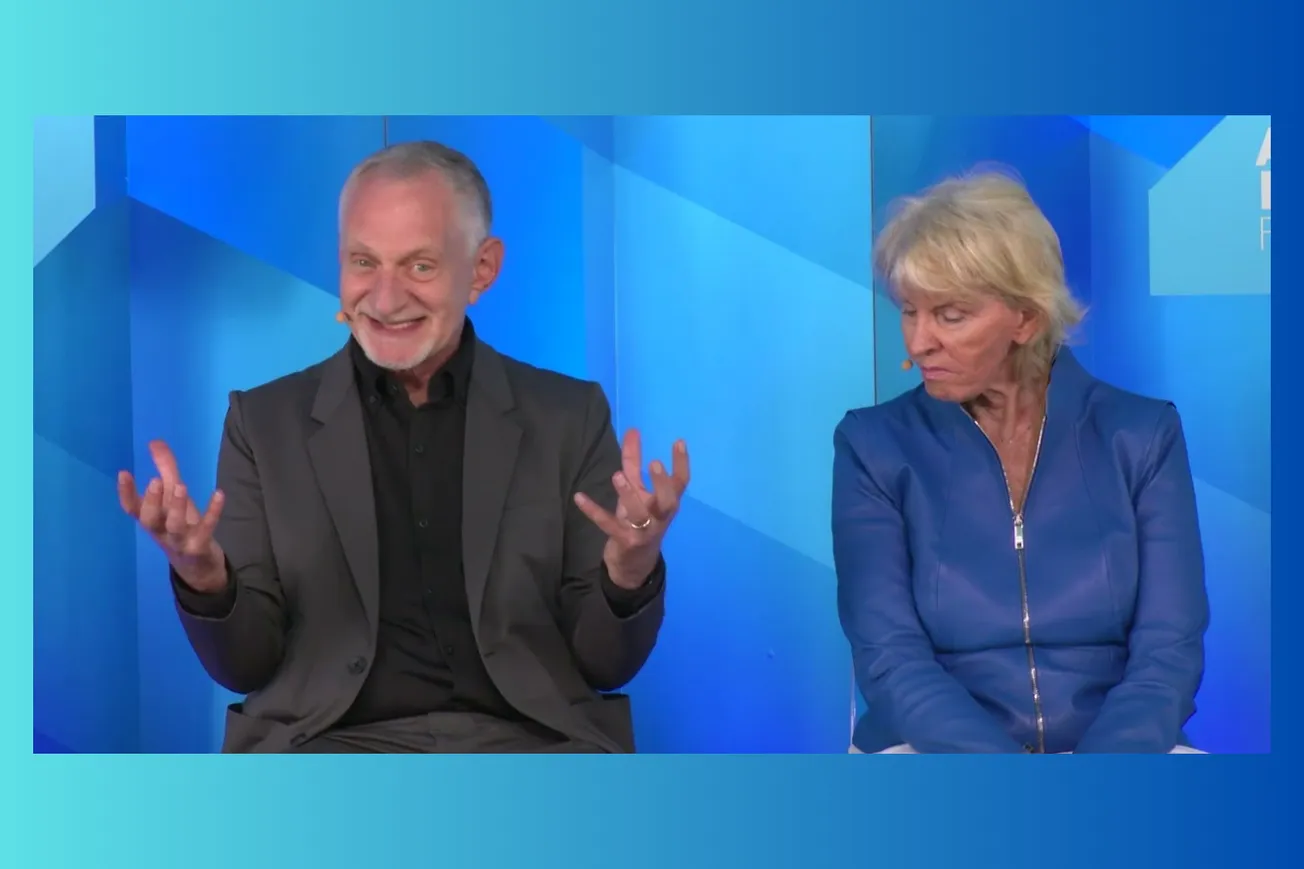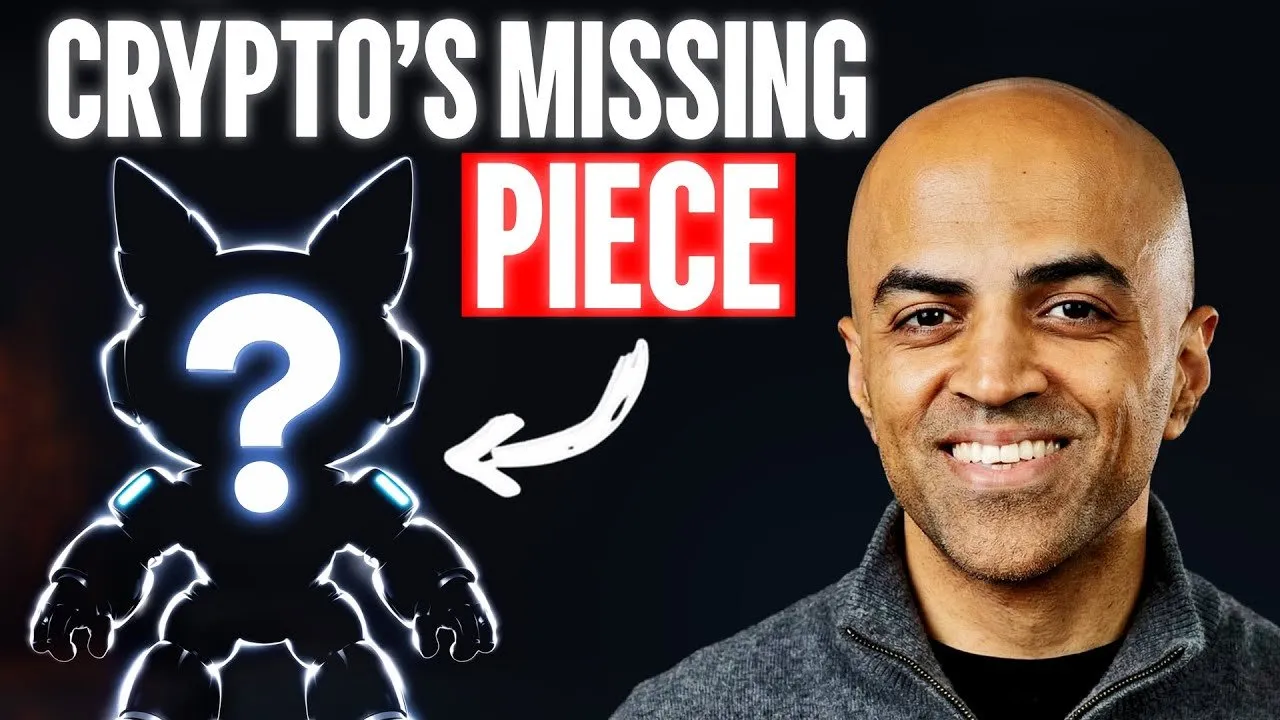Table of Contents
An 87-year Harvard study reveals that relationships, not cholesterol levels, predict healthy aging while experts share practical strategies for navigating life transitions with purpose and joy.
Drawing from the longest-running human development study, experts explore what makes a good life and how to thrive through inevitable changes across different life stages.
Key Takeaways
- Harvard's 87-year study shows relationship quality in middle age predicts health and happiness better than medical metrics in later life
- Social fitness requires daily practice through regular connection, like texting friends during commutes or meeting people for walks
- Facing challenges directly rather than avoiding them consistently leads to better life outcomes across all demographics
- Future self empathy involves treating your older self as a connected person rather than a stranger, enabling better long-term decisions
- Privilege extends life expectancy by 10 years through earlier access to health messages, but basic happiness levels remain equal across economic classes
- Transitions offer opportunities for growth when approached with "yes, and" mindset rather than resistance or denial
- Small acts of connection like 10-minute phone calls or simple entertaining create profound community and belonging
The Harvard Study's Revolutionary Findings
Harvard's Study of Adult Development, running for 87 years, represents the longest examination of human thriving ever conducted. Beginning in 1938 with Harvard undergraduates and inner-city Boston youth, the research now includes spouses and second-generation participants, creating an unprecedented dataset on what enables people to flourish.
The study's most surprising discovery challenges conventional health wisdom: relationship quality in midlife predicts health and happiness in later years more accurately than cholesterol levels, blood pressure, or other medical markers. The most socially connected participants lived longest and experienced fewer illnesses as they aged.
- Study participants from privileged backgrounds lived 10 years longer on average than those from poor neighborhoods
- Longevity differences stemmed from earlier access to public health messages about diet, exercise, and substance use
- Basic happiness and life satisfaction showed no differences between economic classes
- Physical health behaviors remain important, potentially extending disability-free living to 100 years
The research methodology follows the same individuals across decades, tracking health outcomes, relationships, career changes, and life satisfaction. This longitudinal approach reveals causal patterns impossible to detect through snapshot studies or correlational research.
Social Fitness as Life Practice
Social fitness emerged as a crucial concept from analyzing the most successful study participants. Like physical fitness, maintaining strong relationships requires consistent daily and weekly practice rather than sporadic effort. The most socially fit individuals integrated connection activities seamlessly into their routines.
Practical social fitness strategies include making phone calls during commutes, texting friends regularly, meeting people for walks instead of exercising alone, and scheduling regular social activities. These practices create sustainable relationship maintenance without requiring major lifestyle changes.
- Most connected people naturally sprinkled social activities throughout their days
- Social fitness practitioners made specific plans with others consistently
- Regular communication through calls, texts, and in-person meetings strengthened bonds
- Community involvement and helping others provided additional social connection benefits
The concept addresses modern isolation challenges by making relationship maintenance a deliberate practice. Rather than waiting for natural social opportunities, socially fit individuals actively create connection moments while accomplishing other daily tasks.
Navigating Physical Aging and Career Transitions
Professional dancers face unique aging challenges as their careers depend entirely on physical capabilities that inevitably decline. Christopher Taylor's perspective as an Alvin Ailey dancer illuminates how to approach aging when your body defines your work and identity.
The dance career typically peaks in the thirties, forcing early confrontation with physical limitations and career transitions. This premature aging awareness creates wisdom about adapting to change and finding meaning beyond physical capabilities.
- Warming up becomes necessary where once spontaneous movement sufficed
- Career pressures create early awareness of financial and spiritual preparation needs
- Mind-body-spirit connection deepens as physical capabilities require more intention
- Spiritual foundation provides stability as physical abilities fluctuate
Young dancers learn to see aging as blessing rather than decline, appreciating each day while mindfully preparing for inevitable transitions. This perspective offers valuable lessons for professionals in all fields about embracing change and finding deeper purpose.
Caregiving as Personal Transformation
Sally Quinn's caregiving journey illustrates how seemingly burdensome responsibilities can become sources of profound fulfillment and personal growth. Her experience caring for her son with health challenges, parents with strokes and illness, and husband with dementia transformed her from self-focused career woman to person finding deep satisfaction in service.
The transformation revealed unexpected capacity for joy through giving rather than achieving. Caregiving responsibilities initially appeared to derail career ambitions but ultimately provided more meaningful satisfaction than professional accomplishments.
- Caregiving revealed hidden capacity for selfless service and genuine happiness
- Recipients' gratitude created reciprocal joy and meaning for caregivers
- "Wise selfishness" concept: helping others creates personal happiness and fulfillment
- Career sacrifices for caregiving ultimately proved more rewarding than professional achievements
This perspective challenges cultural narratives about career success and personal fulfillment, suggesting that service to others can provide deeper satisfaction than individual achievement or accumulation.
Future Self Empathy and Financial Planning
Dylan Tyson's retirement planning expertise emphasizes treating your future self as a connected person rather than a stranger. Brain imaging shows people think about their future selves using the same neural patterns as strangers, creating psychological distance that undermines long-term planning.
Developing empathy for your future self enables better present-moment decisions about savings, health, relationships, and career choices. This psychological shift transforms abstract future planning into concrete care for someone you love.
- Brain scans show future self-perception matches stranger perception patterns
- Retirement demographics shifting dramatically: 2.5 working-age people per elder by 2050 versus 12 in 1950
- Financial planning requires understanding personal values and future vision beyond accumulation
- Small present sacrifices become acts of love for future self rather than deprivation
The concept extends beyond financial planning to all life decisions involving delayed gratification or long-term consequences. Treating your future self as a beloved person rather than abstract concept motivates better choices across all life domains.
Facing Challenges as Growth Strategy
The Harvard study consistently shows that people who face challenges directly fare better than those who avoid difficult situations. This principle applies to personal health issues, career transitions, relationship problems, and societal challenges.
Challenge avoidance patterns include denying climate change, postponing medical checkups, avoiding difficult conversations, or refusing to acknowledge career transitions. Turning toward difficulties, while initially uncomfortable, consistently produces better outcomes.
- Challenge-facing individuals consistently achieve better life outcomes across all demographics
- Avoidance behaviors include denial of health symptoms, relationship problems, or career changes
- Direct engagement with difficulties enables problem-solving and growth opportunities
- Support systems become visible when individuals acknowledge and face challenges honestly
The research suggests that difficulty tolerance and challenge engagement represent learnable skills that improve with practice. Building comfort with uncertainty and discomfort creates resilience for navigating inevitable life transitions.
Entertainment as Community Building
Sally Quinn's approach to entertaining demonstrates how simple hospitality creates profound community connections. Her philosophy emphasizes bringing people together for shared experiences rather than impressive presentations or perfect execution.
The "sacred table" concept recognizes meal sharing as fundamental human bonding activity. Creating safe spaces for conversation, laughter, and connection serves essential community functions, particularly during divisive social periods.
- Successful entertaining focuses on guest comfort and connection rather than impressive presentations
- Simple gatherings like kitchen conversations with carry-out food create lasting memories
- Laughter and playfulness become essential ingredients for community building
- Hospitality provides service to others while creating personal fulfillment for hosts
Her Popeye's dinner party story illustrates how adaptation and authenticity matter more than perfection. Guests remember feeling "enhanced and ennobled" rather than specific menu details, suggesting that emotional atmosphere trumps material presentations.
Improv and Life Flexibility
Improvisational comedy principles offer valuable life skills for navigating transitions and unexpected circumstances. The "yes, and" approach means accepting whatever situation arises and building upon it rather than rejecting or fighting circumstances.
Sally Quinn's improv practice provides weekly laughter, playfulness, and non-judgmental exploration. These experiences offer respite from daily pressures while building flexibility and creativity muscles applicable to all life challenges.
- "Yes, and" principle creates flexibility and adaptability for life transitions
- Regular laughter and playfulness contribute to mental health and community connection
- Non-judgmental environments enable exploration and growth
- Improv skills transfer to everyday challenge navigation and relationship building
The practice builds comfort with uncertainty and spontaneity while creating community through shared vulnerability and laughter. These skills prove particularly valuable during major life transitions requiring adaptation and resilience.
Spiritual Practices and Meaning-Making
Bob Waldinger's dual identity as Harvard psychiatrist and Zen priest demonstrates how contemplative practices support scientific understanding and personal growth. Meditation and mindfulness practices complement research findings about relationships and challenge navigation.
Spiritual practices provide frameworks for finding meaning in difficulty, developing compassion for self and others, and maintaining perspective during transitions. These approaches support the study's findings about thriving through connection and challenge engagement.
- Meditation practices support emotional regulation during difficult transitions
- Spiritual frameworks provide meaning-making tools for suffering and loss
- Contemplative practices develop empathy and compassion for self and others
- Regular spiritual practice creates stability during change and uncertainty
The integration of scientific research with spiritual wisdom offers comprehensive approaches to living well. Both domains emphasize relationships, service, presence, and growth through difficulty as essential elements of human flourishing.
Practical Action Steps
The panel concludes with specific actionable recommendations that anyone can implement immediately. These suggestions focus on small, sustainable changes rather than major lifestyle overhauls.
The phone call challenge demonstrates how minimal time investments can create significant relationship benefits. Ten-minute conversations reconnect people without requiring extensive time commitments that often prevent contact altogether.
- Reach out to one person you've lost touch with through text or call
- Practice daily kindness and openness to new experiences
- Follow the golden rule in all interactions
- Schedule regular social activities integrated into existing routines
- Face one challenge you've been avoiding
The emphasis on small actions recognizes that sustainable change happens through consistent minor adjustments rather than dramatic transformation attempts. Building connection, kindness, and challenge-facing muscles creates compound benefits over time.
Common Questions
Q: How do relationships actually affect physical health outcomes?
A: Connected individuals experience lower rates of heart disease, diabetes, and other chronic conditions through stress reduction and social support mechanisms.
Q: What's the difference between social fitness and regular socializing?
A: Social fitness involves deliberate daily practices like calling friends during commutes or meeting people for walks, making connection a consistent habit.
Q: How can someone develop empathy for their future self?
A: Treat your future self as a beloved person rather than abstract concept, making small present sacrifices as acts of love for that person.
Q: Why is facing challenges better than avoiding them?
A: Direct engagement enables problem-solving, reveals support systems, and creates growth opportunities that avoidance prevents.
Q: How do you create meaningful community through entertaining?
A: Focus on guest comfort and connection rather than impressive presentations, emphasizing laughter and authentic conversation over perfect execution.
Living better longer requires intentional relationship cultivation, challenge engagement, and meaning-making practices that can begin at any age. The longest-running human study provides evidence-based guidance for thriving through life's inevitable transitions.





